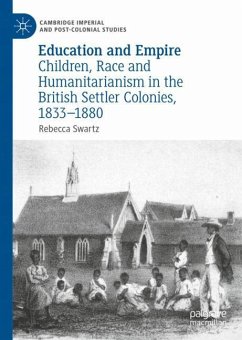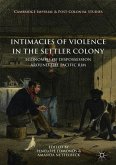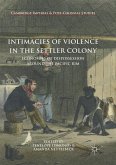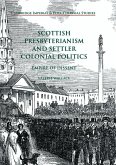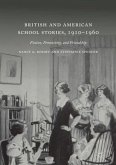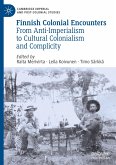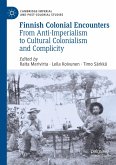This book tracks the changes in government involvement in Indigneous children's education over the nineteenth century, drawing on case studies from the Caribbean, Australia and South Africa. Schools were pivotal in the production and reproduction of racial difference in the colonies of settlement. Between 1833 and 1880, there were remarkable changes in thinking about education in Britain and the Empire with it increasingly seen as a government responsibility. At the same time, children's needs came to be seen as different to those of their parents, and childhood was approached as a time to make interventions into Indigenous people's lives. This period also saw shifts in thinking about race. Members of the public, researchers, missionaries and governments discussed the function of education, considering whether it could be used to further humanitarian or settler colonial aims. Underlying these questions were anxieties regarding the status of Indigenous people in newly colonisedterritories: the successful education of their children could show their potential for equality.
"Rebecca Swartz's Education and Empire ... is a welcome addition both to the Cambridge Imperial and Post- Colonial Studies series ... . this is an important book for anyone working across such topics and spaces within histories of nineteenth century British world childhood or education. ... this book makes a strong case for both education and childhood to be taken seriously as powerful and integrative categories of analysis ... ." (Hugh Morrison, The Journal of the History of Childhood and Youth, Vol. 16 (3), 2023)
"An ambitious and meticulously researched book ... . Through a series of illuminating case studies, she highlights the tendency of imperial educational efforts to become enmeshed and subsumed by settler interests. ... Swartz's tight focus on (mainly secular) forms of education and her deft movement from the bird's-eye level of imperial policy making to on-the-ground contestations, breaks new ground in revealing the centrality of education to the managementof racial difference. ... Swartz's insightful study lays the groundwork for future investigations ... ." (Ellen Boucher, Journal of British Studies, Vol. 61 (1), January, 2022)
"Swartz's monograph is a well written and important study in the examination of education as a tool of humanitarians to shape children in the colonies, and the ways in which the colonial contexts warped this tool to reflect their own expectations of indigenous children as labourers serving the settler colonists, thereby contributing to discourses of essentialist 'racial' differences in various colonial contexts." (Felicity Jensz, History of Education, February 3, 2020)
"An ambitious and meticulously researched book ... . Through a series of illuminating case studies, she highlights the tendency of imperial educational efforts to become enmeshed and subsumed by settler interests. ... Swartz's tight focus on (mainly secular) forms of education and her deft movement from the bird's-eye level of imperial policy making to on-the-ground contestations, breaks new ground in revealing the centrality of education to the managementof racial difference. ... Swartz's insightful study lays the groundwork for future investigations ... ." (Ellen Boucher, Journal of British Studies, Vol. 61 (1), January, 2022)
"Swartz's monograph is a well written and important study in the examination of education as a tool of humanitarians to shape children in the colonies, and the ways in which the colonial contexts warped this tool to reflect their own expectations of indigenous children as labourers serving the settler colonists, thereby contributing to discourses of essentialist 'racial' differences in various colonial contexts." (Felicity Jensz, History of Education, February 3, 2020)

